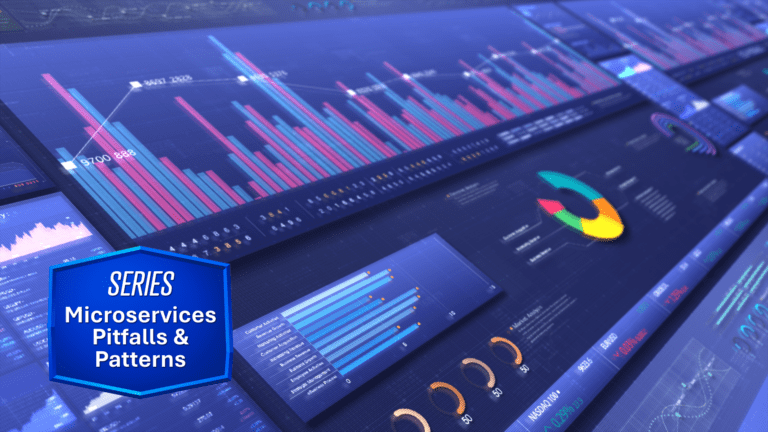
It’s no secret that e-commerce organizations have a wealth of data available to them, due to conducting their operations online. However, some still struggle to derive meaningful insights to drive impactful change.
Learn how businesses in the e-commerce industry can apply data science to optimize their processes and maximize sales and customer satisfaction.
Things to know about data science in the e-commerce industry:
- What is Data Science?
- Applications of Data Science in the E-Commerce Industry
- Benefits of Applying Data Science in E-Commerce
What is Data Science?
Data science uses statistics, advanced analytics, artificial intelligence (AI), machine learning (ML), and specialized programming to extract meaningful insights from data to drive strategic planning and empower decision-making.
5 Applications of Data Science in the E-Commerce Industry
- Improved recommendations
- Pricing optimization
- Supply chain management
- Inventory management
- Improved customer experience
Improved recommendations
When your e-commerce organization leverages the historical data it has on users’ browsing, searching, and purchasing behaviors, you can make more effective product recommendations that drive more conversions.
You can use customer data and predictive modeling to develop a recommendation engine that will cross-sell and upsell. For example:
- If you know a customer recently bought a TV from your site, your data-driven recommendation engine can recommend a TV stand, media console, or wall mounting kit to furnish or install your TV.
- If you know that a customer has been browsing TV options, you can provide recommended options for newer models that have slightly larger screens and are slightly more expensive.
- If you know a customer purchased a product, such as a beauty product or nutritional supplement, a few months ago that they may have run out of, you can recommend it as a product to purchase again.
When you harness the power of data science to leverage historical data and enable your predictive analytics capabilities, you can significantly increase sales by showing your customers the products that they are most likely to purchase.
Pricing optimization
The pricing of an e-commerce product is based on numerous external and internal factors, including the cost of materials and production, customer demand, and prices of market competitors. These factors are subject to fluctuation, and your pricing needs to reflect any relevant shifts.
E-commerce organizations can use data science to aggregate and analyze data on a variety of factors to determine an appropriate product price that is competitive in the market and feels reasonable to targeted consumers.
By automatically optimizing your product pricing, your organization can increase agility, compete against other retailers, and maximize revenue.
Supply chain management
E-commerce businesses need to ensure they have the right amount of products ready to meet consumer demand in a timely manner. Numerous factors and inputs can impact your supply chain, including scarcity of raw materials, stock qualities, vendors, and locations of goods in dispatch.
Data science tools and machine learning algorithms can be used to predict patterns of inputs and outputs and anticipate changes in the market.
This level of insight increases your organization’s agility and ability to react to changes in your supply chain, minimizes risk, and maximizes customer satisfaction.
Inventory management
E-commerce organizations can waste significant amounts of money when they store more products than they need to. Data science enables your organization to track inventory and forecast demand, then manage your inventory levels accordingly.
By gaining insights into your inventory levels and managing them so they neither exceed the required amount nor fall short of the amount needed, your e-commerce business can reduce costs and optimize cash flow.
Improved customer experience
Nearly 90% of customers say the experience a company provides is as important as its products or services.
If you want to attract new customers and retain loyal consumers, you need to ensure your e-commerce site – and your mobile app, if you have one – delivers the exceptional, seamless, and customized digital experience that consumers desire.
Your business can use natural language processing (NLP) to analyze significant volumes of data across multiple platforms, including social media, review sites, forums, AI chatbots, complaint forms, and customer support email inboxes.
By aggregating this data and performing customer sentiment analysis, your e-commerce organization can identify ways to improve your product mix, website, mobile app, or overall customer experience. This, in turn, increases customer satisfaction, loyalty, and sales.
Benefits of Applying Data Science in E-Commerce
Harnessing your e-commerce data to derive meaningful insights and identify patterns enables your organization to realize impressive benefits, including:
- Improved marketing strategy
- Increased agility
- Improved customer experience
- Greater competitive advantage
- Increased efficiency
- Increased revenue and sales
- Reduced risk
Maximize the Value of Your E-Commerce Data
When you leverage data on customer behaviors and preferences, as well as data on your supply chain, market trends, and internal processes, you can derive powerful insights.
At AIM Consulting, we leverage proven methodologies, tools, and technologies to define the right data and analytics solution for your e-commerce organization, solving complex business challenges and driving future growth.
Let’s create a data science solution that will improve your customer satisfaction, optimize your processes, and maximize your revenue.
Need Help Turning Insights Into Action?
Join the many businesses in the e-commerce industry that are exploring new ways to leverage big data to improve operations and drive customer satisfaction and loyalty.




